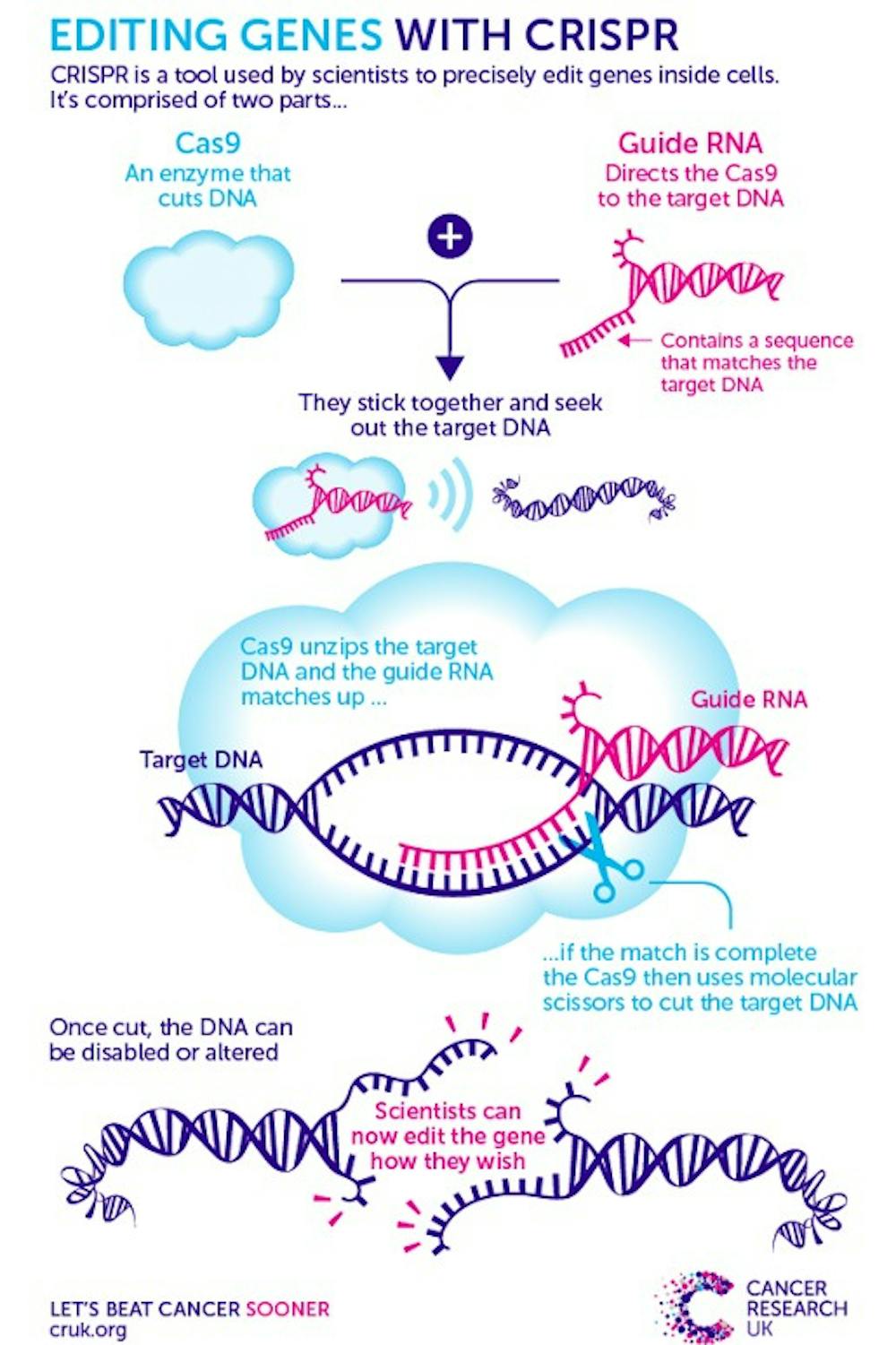Clustered Regularly Interspaced Short Palindromic Repeats offer the potential to manipulate specific DNA sequences or entire genomes. At the University, use of this technology specifically focuses on practical significance.
“[CRISPR] describes a DNA sequence pattern which was first reported in E. coli in 1987, but the acronym was not introduced until 2002 along with Cas (CRISPR-associated proteins),” Assoc. Medical Prof. Wenhao Xu said in an email to the Cavalier Daily. “The function of CRISPR/Cas was revealed in 2005 as the acquired immunity against viruses in prokaryotes. The system was reconstructed in a test tube as a tool for programmable genome editing in a landmark publication in 2012. Quickly, the system was shown to work effectively in both human cell lines and mice.”
Xu’s focus with CRISPR has been intensively concentrated in the Genetically Engineered Murine Model core.
“The GEMM began to adopt the CRISPR technology only one week after the [2012] publication on mice and made the first CRISPR mouse at U.Va. eight weeks after,” Xu said. “We have now successfully generated more than 100 CRISPR mice including knockouts and knock-ins.”
CRISPR enables engineers to use mice as primary models — mimicking both human structure and function — that can then be used to study human diseases.
Following a process of differentiation, cells are typically fated to remain in specific organs and serve a particular function. Stem cells retain the potential to develop into different cell types. A distinct characteristic of CRISPR is its ability to change a cell’s fate.
“In our body, we have about 200 different cell types and they all come from single cells called rhizomes,” Asst. Medical Prof. Mazhar Adli said. “Stem cells basically differentiate, and become all sorts of different cells in our body.”
The Adli lab focuses on understanding genome-level regulation in development, specifically researching cancer pathogenesis and treatment. Use of the CRISPR/CAS9 system and the genetic manipulation it allows provide a means of monitoring cellular state transitions during normal and malignant development.
Due to its extensive use and benefits in the field of genetic engineering, CRISPR is regarded as an advanced system with the potential to alter the future of the medical field.
“CRISPR is now becoming a widely-used technology tool for research and clinical trials,” Adli said.
At the University, the technology offers insight into the relationship between genes, cells and disease — facilitating the discovery of new ways for the improvement of health.
“Genetic engineering is not new, and yet the CRISPR as a powerful and precise genome editing tool holds a tremendous promise for understanding and treating many human genetic disorders in the future,” Xu said.







